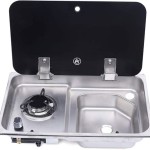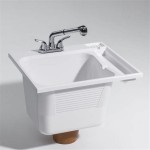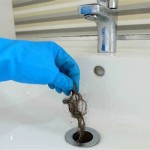Black Mold In Sink Drain
Black mold is a type of fungus that can grow in dark, damp places, such as sink drains. It is usually caused by a buildup of organic matter, such as food particles, hair, and soap scum. Black mold can cause a variety of health problems, including respiratory problems, skin irritation, and allergic reactions. It can also damage your sink and plumbing.
There are a few things you can do to prevent black mold from growing in your sink drain. First, make sure to clean your sink regularly with a bleach-based cleaner. This will help to kill any mold spores that may be present. Second, avoid letting food particles and other organic matter build up in your drain. Rinse your dishes thoroughly before placing them in the sink, and use a drain strainer to catch any food particles that may escape.
If you do find black mold in your sink drain, there are a few steps you can take to clean it up. First, remove any visible mold with a brush or sponge. Then, pour a bleach-based cleaner down the drain and let it sit for several minutes. Finally, flush the drain with hot water.
If the black mold is severe, you may need to call a plumber to clean it out. A plumber can also inspect your plumbing to make sure there are no other areas where mold is growing.
Signs of Black Mold in Sink Drain
There are a few signs that you may have black mold in your sink drain. These include:
- A musty smell coming from the drain
- Black or dark green slime in the drain
- Mold spores floating in the water in the sink
- Respiratory problems, such as coughing, wheezing, or shortness of breath
- Skin irritation, such as rashes or itching
- Allergic reactions, such as sneezing, runny nose, or watery eyes
Health Risks of Black Mold in Sink Drain
Black mold can cause a variety of health problems, including:
- Respiratory problems, such as coughing, wheezing, or shortness of breath
- Skin irritation, such as rashes or itching
- Allergic reactions, such as sneezing, runny nose, or watery eyes
- More severe health problems, such as asthma, bronchitis, or pneumonia
If you have any of these symptoms, it is important to see a doctor to rule out black mold exposure as a possible cause.
How to Clean Black Mold in Sink Drain
If you find black mold in your sink drain, you can clean it up with a few simple steps:
- Remove any visible mold with a brush or sponge.
- Pour a bleach-based cleaner down the drain and let it sit for several minutes.
- Flush the drain with hot water.
If the black mold is severe, you may need to call a plumber to clean it out. A plumber can also inspect your plumbing to make sure there are no other areas where mold is growing.
Prevention Tips
There are a few things you can do to prevent black mold from growing in your sink drain:
- Clean your sink regularly with a bleach-based cleaner.
- Avoid letting food particles and other organic matter build up in your drain.
- Rinse your dishes thoroughly before placing them in the sink.
- Use a drain strainer to catch any food particles that may escape.
- If you have a garbage disposal, run it regularly to help keep your drain clean.
By following these tips, you can help to prevent black mold from growing in your sink drain and protect your health.

What Causes Black Mold In Sink Drains How To Get Rid Of It

How To Clear The Black Slime From Your Bathroom Sink

5 Signs That You Have Mold Growing In Your Sink Drain

How To Effectively Remove Black Mold In Sink Drains Damage Control

What Is Black Sludge In A Sink Drain Birnie Plumbing Drains

What Causes Black Mold In Sink Drains How To Remove It

How To Clean Up Mold From Your Sink Drain Steps The Ultimate Crew Inc

What Is Black Sludge In A Sink Drain Birnie Plumbing Drains

How To Clean Mold In Bathroom Basin

How To Clean Up Mold From Your Sink Drain Steps The Ultimate Crew Inc







